On Lessing's 'Nathan the Wise': Is a Harmony of Cultures Possible?
[This is a transcript of an RTF lecture I delivered in January 2023.]
For those who are not aware of who is Gotthold Lessing, I will speak of him as a person and his contribution to German culture later on, but he is considered the father of German classical literature. And “Nathan the Wise” for those who are not aware is centered in Jerusalem, the Holy Land, overlapping with the period of the Third Crusade. “Nathan the Wise” is a play, or what Lessing called a “poetic drama” that centers around the story of Nathan (who is a Jew), a Templar and Saladin. Saladin is the Sultan and holds jurisdiction of Jerusalem at this point. The Templar’s life has been spared, the only Templar to be spared by Saladin.
Thus, there is this question of, with all of these three religions meeting in the Holy Land, what is the ultimate fate of humankind and is there really one religion in particular that deserves to call the Holy Land their own.
And so, I think I am just going to share some, what I think are, key aspects of the dialogue, because as Matt said, I do want to talk about a lot of other things outside of this play, however, it is important that people get a bit of a refresher or an introduction to the play.
One of the key conversations, which I chose to take out of this play is with Saladin and his sister Sittah. King Richard, who is the King of England at this time and is the one who kind of instigates the Third Crusade, Saladin says in reference to him:
People should be aware that Saladin was an actual person and had captured Jerusalem from the Crusaders. He actually had the reputation of being a very merciful and benevolent ruler of Jerusalem.
Saladin had captured almost every Crusader city. ‘Saladin preferred to take Jerusalem without bloodshed and offered generous terms, but those inside refused to leave their holy city, vowing to destroy it in a fight to the death rather than see it handed over peacefully. Jerusalem capitulated to his forces on Friday, 2 October 1187, after a siege. When the siege had started, Saladin was unwilling to promise terms of quarter to the Frankish inhabitants of Jerusalem. Balian of Ibelin threatened to kill every Muslim hostage, estimated at 5,000, and to destroy Islam's holy shrines of the Dome of the Rock and the al-Aqsa Mosque if such quarter were not provided. Saladin consulted his council and the terms were accepted. The agreement was read out through the streets of Jerusalem so that everyone might within forty days provide for himself and pay to Saladin the agreed tribute for his freedom. An unusually low ransom was to be paid for each Frank in the city, whether man, woman, or child, but Saladin, against the wishes of his treasurers, allowed many families who could not afford the ransom to leave. Patriarch Heraclius of Jerusalem organised and contributed to a collection that paid the ransoms for about 18,000 of the poorer citizens, leaving another 15,000 to be enslaved. Saladin's brother al-Adil "asked Saladin for a thousand of them for his own use and then released them on the spot." Upon the capture of Jerusalem, Saladin summoned the Jews and permitted them to resettle in the city.’ [1]
So there is a period of peace due to Saladin’s benevolent rule and even King Richard puts forward the offer “How about you marry my sister?” the idea being that they would both rule over the Holy Land together. This promise had a lot of potential, as Saladin is bringing up in Lessing’s dialogue, what a world that would have been if this had worked out, but the problem with King Richard’s offer was that he was saying that Saladin would have to convert to Christianity anyway. So in the end, it wasn’t really much of a peace offering since that would basically put Saladin against his own people.
In the story of “Nathan the Wise”, the Templar has been freed by Saladin (all other captured Templars were executed) and it is because the Templar reminds Saladin of his long lost brother, even though the Templar is much younger then the age his brother would be. Nonetheless, Saladin is very moved when he sees him and he spares his life. And so this Templar is just sort of wandering around in Lessing’s play, he is separated from the other Templars, but he is also going through what you could say an existential crisis. And Nathan, who is a Jewish merchant, he returns to Jerusalem from his voyage collecting a whole bunch of beautiful items, and finds out that the Templar has saved the life of his daughter. The house was on fire, for whatever reason, and the Templar rushed in and saved her only to realise afterwards that she was Jewish and the Templar doesn’t want anything to do with the family because of that. But Nathan wants to give thanks for saving his daughter’s life.
Nathan thanks the Templar for saving his daughter’s life, even though she does not practice his faith, the Templar responds with:
So the Templar is remarking that Nathan knows well the sort of chivalrous “honor code” of knights. Nathan responds with the question, should you only do honorable things if your Order bids it? There is a clear insinuation here to Christianity more broadly as well, do you only act to save a life because you know it would be regarded favourably by your religion. Nathan goes on to bring up the fact that there are good men everywhere, and they do not need to be a part of a Knights’ Order or Christian in order to be deemed so.
However, the Templar is convinced of his superiority to those outside these groupings, he feels ever more convinced of it after his experience in the Holy Land.
Nathan responds with:
This is going to be a theme, the central theme of Lessing’s “Nathan the Wise” that we are first humans, we are first what you could call humane, before we are a citizen of a country, or a practicer of a religion, and it is this human bond that universally unites us. A citizen of a country, or a practicer of a religion will practice certain things that ought to practice the good and the moral and so forth, and this in its most universal form unites us all naturally since the good and the moral are not owned by one faith. And thus the argument is that we are all ultimately brothers and sisters, despite being citizens of a country, or practicers of a religion, since these things should not take precedence over the welfare of others.
Saladin did have a reputation (in real life) of spending all of his money for the poor and also he had to spend a lot of money for the defense against the Crusaders as well. And in Lessing’s story “Nathan the Wise”, Saladin hears about Nathan’s riches and he calls Nathan to come see him, this is the first time that they are meeting, and Nathan is expecting Saladin to ask him for access to his riches. But instead, Saladin asks Nathan, in a somewhat tricky way, “Who do you think is the best of the religions?”
Nathan answers this question with the story of the three rings. This was a story taken from Boccacio’s Decameron, which goes through the story of Melchizedek the Jew, with a story of the three rings, who escapes a snare set for him by Saladin.
It is the same story in a nutshell, but Lessing wants to makes this a fuller investigation and is what spurred him, I think in a lot of ways, to write “Nathan the Wise” with this question.
For those who are not aware, Boccaccio is somewhat of a contemporary with Dante and they were both very instrumental in the formation of the Italian language. Because Italy, very much like Germany, was not a country, there were a lot of warring states and they didn’t really have a language to unify the people. So Boccaccio and Dante played a very central role in bringing that about with their works of literature.
And Lessing in his period was going through very similar problems for Germany, as we will go into a little bit later on, where Germany was not a country during Lessing’s time and there were a lot of warring states, like the 30 Years War pitting Catholics against Protestants had just ended, and so there was not really a higher language in Germany either, that could not only unify the people but also cultivate their better natures. Because it really is through language and culture that these things happen.
So, Lessing borrows from Boccaccio, and the story of the three rings is about a King who has this ring which is meant to rule over his kingdom, this ring has been carried forward for generations, and it is always given to the person that is considered the most fit ruler. However, we reach a point where the King has three sons who he considers to be worthy and is unable to choose one of the three sons and he ends up asking this jewellery smith to make two other rings that are identical to the one ring. And so he gives each son the ring that are so alike that they are indistinguishable from each other and thus no ones knows who has the true ring and the king passes away. It is only then that the sons discover the situation that they were all given the supposed one ring and they were all told they were fit to be ruler.
This is in response to Saladin asking the question what is the best religion. In Lessing’s “Nathan the Wise” version, there is a judge that is brought forward to decide who amongst the three sons (i.e. the three religions) is the true ruler, Nathan continues the story to Saladin:
Saladin is at first not impressed with the answer since the three religions, unlike the rings are very distinguishable from each other, even in their dress, their food and drink. But Nathan makes the point that what they share in common is that they are all founded on a history that demands trust from its followers. Thus, to demand that someone converts to a different faith is akin to their rejecting the history of their own people in favor of another. It is asking for one to turn away from their ancestors and have more faith in another people’s history. This, of course is a very tall demand. Saladin agrees.
Nathan continues:
So Nathan is saying in the first paragraph the three sons did not want to doubt the memory of their dear father and blame him for creating this problem, and so they feel they have no choice but to conclude that it was due to the treachery of one of their brothers, even though they originally had a love for their brother.
Nathan is saying in the second paragraph (through the voice of the judge in the story) the judge asks each brother which of the other two he loves best, that is, thinks is more fit to rule. Thus, if every brother were to vote like this we could possibly have an answer to who is most fit. However, if all refuse to choose anyone but themselves than, the judge deems, they are all cheats. The judge muses perhaps the genuine ring was lost (i.e. there is no worthy ruler) and the father, in his attempt to conceal this, created three false rings since none of them are fit to rule and hold the true ring.
Keep in mind that the Third Crusade has just happened and Saladin is very happy with this answer. Just as the Templar was happy also with Nathan agreeing with this problem of an idea of “the chosen people” is what started this whole thing and Nathan agrees that this is at the heart of the problem.
Nathan goes on in his story:
The judge goes on, if we are to believe that the father was honorable in his conduct, let the case remain exactly as it stands. If each son was given the ring directly from his father, let each believe his own to be the true ring. The father would not have left a ring to anyone who thought would subject his kingdom to tyranny. That the father loves all three sons equally such that he could not choose one to be exalted over the other two, let each son thus strive to bring the greatest virtue to their own ring (i.e. religion). Let this be striven towards from your children’s children and in a thousand, thousand years, may the fruits of your virtuous actions, your good works, be judged by a wise man, until then we must reserve our judgement over who is best. In other words, who has, if any, reached the level of excellence that meets the standard to represent God’s wisdom. For at this point, in front of the judge, none of the sons have earned the claim that they are more excellent than the other and deserve to be the sole ruler.
Nathan goes on to say, are you Saladin perhaps the wise judge that is now in a position to decide who is the most excellent of the three? The Sultan (Saladin) who is so moved by this story answers that he is no wise judge to preside over such a judgement, but rather calls himself “Dust!” in comparison. Saladin answers, there has not yet passed the thousand, thousand years. He ends with asking Nathan to be his friend.
So thus far, Nathan has been successful in befriending a Templar and the Sultan Saladin.
We have as another character in Lessing’s play, the Patriarch of Jerusalem, which is a representation of the Catholic Church and there is this lay-brother who is acting as his messenger to the Templar. The lay-brother first comes to the Templar relaying what the Patriarch is asking for which is to act as a spy in Saladin’s court in order to overthrow Saladin. The Templar is disgusted with this offer.
And in this section, the Templar has since agreed to come for supper with Nathan’s family and ends up falling in love with Nathan’s daughter. The Templar says:
What a beautiful idea that the Holy Land was made Holy not because you asserted your religion as dominant, like planting a flag into the ground, but rather that this land has become Holy to this Templar (who is no longer associating himself as a Templar) because it has helped him to remove prejudices. I think that is a really great idea of what the Holy Land should represent. And he says that when Saladin spared his life, his old head was not the one that was preserved but rather he has a new one, without the baggage and the prejudice from before and which allows him to breathe better his native air. The air of the Holy Land has become his native air for he has been reborn here in a way, reborn without the prejudices he once held that were stifling.
Later on the Templar finds out that Nathan’s daughter is not really Nathan’s daughter. One of Nathan’s servants, who is a Christian, basically tells the Templar this. And this servant says that Nathan actually adopted this girl when she was a baby, and that she was a Christian baby but that Nathan raised her as a Jewish baby. This was something that was super controversial, especially during Lessing’s time, and the Templar ends up asking the Patriarch of Jerusalem what he should do with this knowledge, though he refuses to reveal the identity of Nathan to the Patriarch. The Templar is conflicted, and he only knows this small part of the story, the servant has left out a great deal, as we will find out, and the Patriarch is basically saying that this person should be burned at the stake for raising this kid as a Jewish kid. But the Templar is more understanding and makes the point he could not raise the child as a Christian child since he is not Christian, he’s Jewish and is familiar with the Jewish religious teachings. Meaning that Nathan is not likely familiar enough with the Christian teachings to even attempt to raise the child as a Christian. However, he did raise her to wield Reason to know God, that was the essential component, her relationship to God through her use of Reason.
As we will see later on, Nathan the Wise is very much modelled off of Moses Mendelssohn, who was a very close friend of Gotthold Lessing. That was the essential component for any religion, as deemed by Moses Mendelssohn, is that you have to come to the Knowledge of something through Reason, it cannot be just through blind faith, the supernatural or whatnot. And so the question was, would it have been better for this girl to have been raised with no knowledge of God at all rather than raised under the Jewish religion which holds ultimately a universal concept of what is God in its highest teachings. And the Patriarch responds with, yes, it would have been better for her to have been raised with no knowledge of God at all, rather than raised by the Jewish religion.
The Patriarch at this point is getting very upset with the Templar for even pondering this question and grows ever more angry since the Templar continues to refuse to reveal the identity of the individual he is discussing. The Templar, however, is still troubled by this and does not know what to do.
The lay-brother who was witness to this conversation, goes to see Nathan and asks him if the child he brought to him years ago, is this the same child they were speaking of. So, it turns out that the lay-brother, a Christian, was the one who brought this Christian child to Nathan, a Jew, who had the reputation of being the wisest and the most benevolent of all of the inhabitants of the Holy Land.
The lay-brother says:
So again, this common theme, what we identify to be the most human, this moral aspect of what is generally perceived as goodness within a person outside of title, is what can unite us all.
So to complete the story, Nathan reveals that the child was entrusted to him after the Christians massacred the Jews, including his wife and seven children, Nathan swears an undying hatred of Christendom but then he takes in this Christian child, and he accepts it as a gift from God. He ends up forgiving the Christians for this and does not hold a grudge.
Then later on we realise, that the Templar’s true name is Leo of Filneck, and Stauffen was his mother’s name. It is going to get a little confusing but Leo, who is the Templar’s name, his mother was a Christian German and his father is Saladin’s brother, who changed his name to a Christian name because he fell in love with a Christian woman. Thus, in order for him to live his life with her, he had to convert and change his name.
So the twist at the end of this story is that the Templar and Nathan’s daughter are actually brother and sister since she also comes from that family who Nathan actually knew, Saladin’s brother, but he did not know that it was Saladin’s brother. And that is also why the child was brought to him, because the mother was killed and the father could not get there for whatever reason.
So you end up finding that the Christian, Jew and Muslim all have a common bond in this ending and that the union of Christian and Muslim parents who have a Jewish guardian and a Muslim uncle. It is a nice story of the union of humankind, and the representation of the Holy Land as the understanding of the universal truths that can unite these religions where we can regard the other as brother and sister.
The above image is of Saladin’s tomb. Saladin who died in 1193 in Damascus, at the time of his death possessed one piece of gold it is said, and forty pieces of silver, he had given everything else away, his great wealth, to his poor subjects leaving nothing to pay for his funeral. He was buried in a mausoleum in a garden outside the Umayad Mosque in Damascus, Syria. Originally the tomb was part of a complex which also included a school of which little remains except the internal arch.
Seven centuries later Emperor Wilhelm II of Germany donated a marbled sarcophagus to the mausoleum, however, the original sarcophagus was not replaced so that today there are two sarcophagi, the marbled one and the original wooden one that remains Saladin’s tomb.
As I was mentioning, Lessing was the generator of modern German literature.
In the early seventeenth century, war had weighed heavily over Europe, particularly over Germany with the Thirty Years War which was the cockpit where the war against the Catholics and the Protestants were fought. The Germans lost about 1/3 their population in this war. It was an incredibly divisive war for the German people, who were not yet a country at this time.
This was not just a physical, or material destruction but it also resulted in a sort of paralysis intellectually and spiritually speaking for the German people. And even though the war ended in 1648 it was a prolonged period before a recovery started to occur.
Another hindrance to the German letter, that is, the German language, was this absence of a national unity, the want of an acknowledged center of the national life.
Again they didn’t have a capital for a very long time as well since the German people had all of these different districts and I guess you could say competition and not really putting all of your resources together to have this national identity which is important in terms of a formation of a culture.
Before Lessing’s birth in 1729, the person who was the outstanding literary figure of the German regions was Johann Christoph Gottsched, who was described as a dictator for a generation in the German language. Dictator in the sense that he was very pedantic with the rules that he set out. In his Kritischen Dichtkunst Fur Die Deutschen which was a volume of rules which nobody was allowed to deviate from, he had rules for how poetry should be done, and literature, and so forth. They were basically meant to imitate the French in their artificial and pseudo-classical drama, because the French were also not doing so well in their literature at this time and Schiller actually makes fun of the French dramas since it was so heavily forced on Germany for the longest time because Germany didn’t really have a language. Just like in the Russian courts, where they used the French language in their arts and sciences since the Russians too did not have an uplifted language until Pushkin.
It was the same thing for Germany, they didn’t really have a German language, so it was French that was their model.
So, it was funny that one commentator had written that because the Germans were being encouraged to imitate the pseudo-classical drama of the French, that it had become an “imitation of an imitation.” So it was a really bad situation you could see for German literature and creativity.
And it was basically Lessing who started to open the doors to an approach to German classical literature, the great German classical literature that we know of today. And Lessing was a peer and a good friend of Moses Mendelssohn, who we will talk some more about shortly. And both Lessing and Mendelssohn are basically the fathers of the German classical culture movement, philosophically as well as in the arts.
It was unfortunate that Lessing, who had Puritan parents who thought he was going to burn in hell for writing things that were associated with stage-productions. That was something that was really criticised, unfortunately Lessing lived a pretty hard life, he was always struggling financially, it is very common that these great minds are not appreciated in their own lifetime, only afterwards.
A very telling quote of how Lessing was thinking about the problem of German culture, in terms of the arts especially during the time, he writes:
That is a very telling quote, Schiller studied Lessing closely and his philosophy of how German art should be transformed and that is very key right there, that “genius can only be kindled by genius; and most easily by a genius which seems to have to thank nature for everything and does not frighten us away by the tedious perfections of art.”
And as I was going over in a previous class of mine, Schiller was very much of this idea that drama and art - it shouldn’t be pedantic, it shouldn’t be preachy of what morality should be, but rather encourages us by uplifting us to a higher standard by inspiring us. Which was a very big deal because during their life it was very preachy and suffocating.
I am not going to say too much just yet about Moses Mendelssohn and Gotthold Lessing but I do want to mention that there is a connection with Mozart’s opera “Abduction from the Seraglio”, we are going to see that there is a lot of overlap with these players and what they were intervening on philosophically, scientifically, artistically, and politically in Germany and Austria and more broadly in Europe.
Refer here for the Second Part of this lecture.
Cynthia Chung is the President of the Rising Tide Foundation and author of the books “The Shaping of a World Religion” & “The Empire on Which the Black Sun Never Set,” consider supporting her work by making a donation and subscribing to her substack page Through A Glass Darkly.
Also watch for free our RTF Docu-Series “Escaping Calypso’s Island: A Journey Out of Our Green Delusion” and our CP Docu-Series “The Hidden Hand Behind UFOs”.
Footnote:
[1] https://en.wikipedia.org/wiki/Saladin


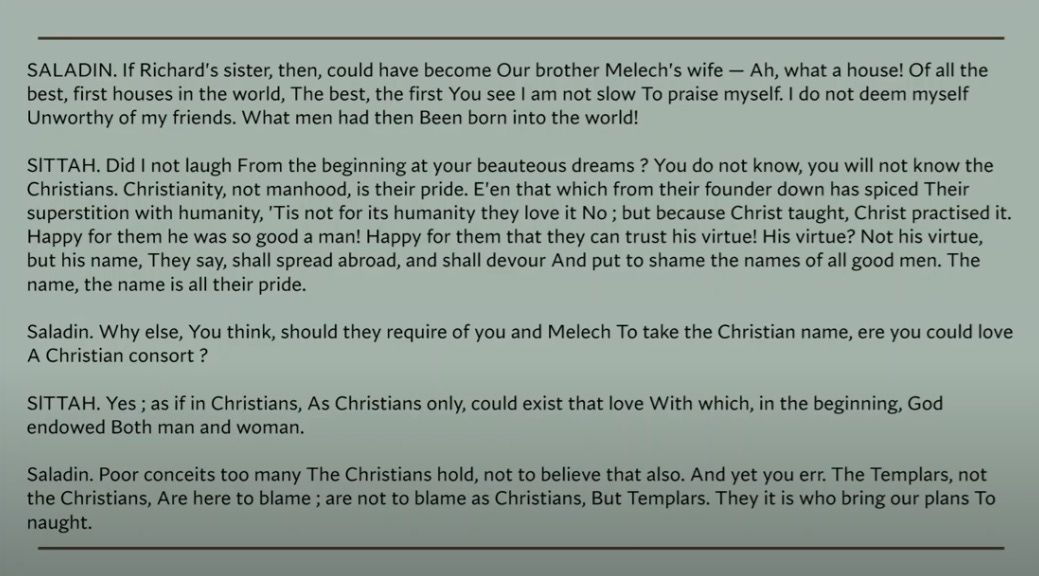
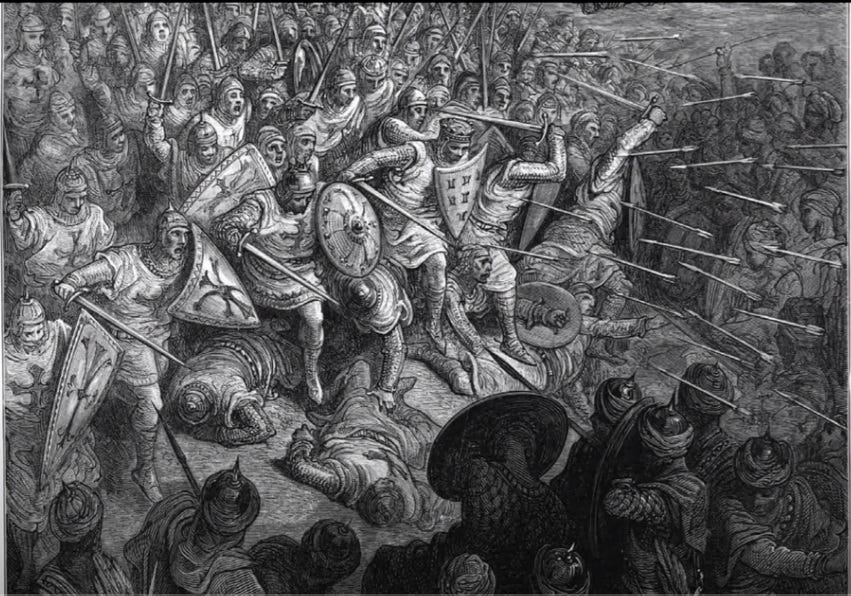
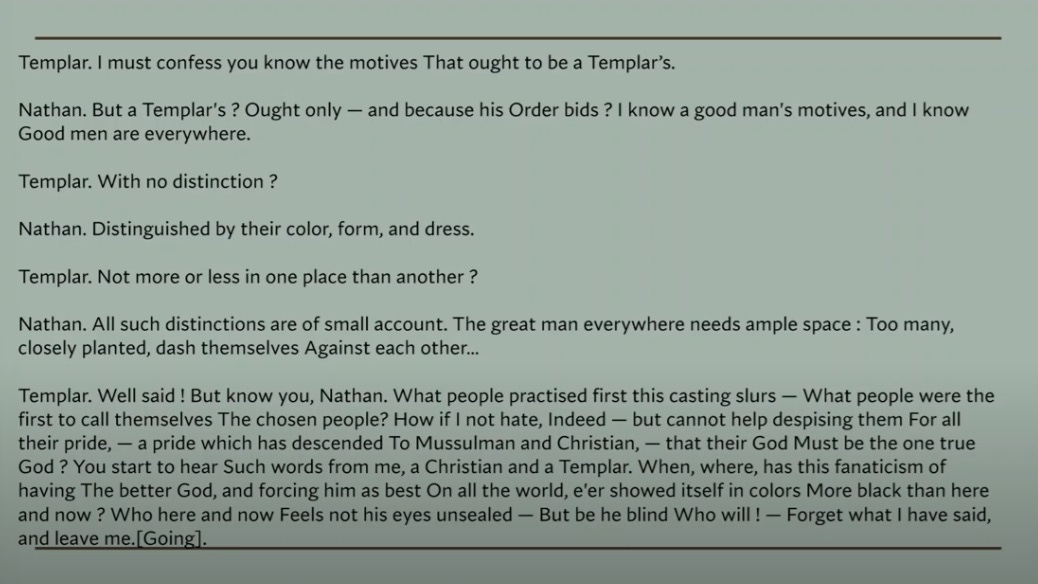
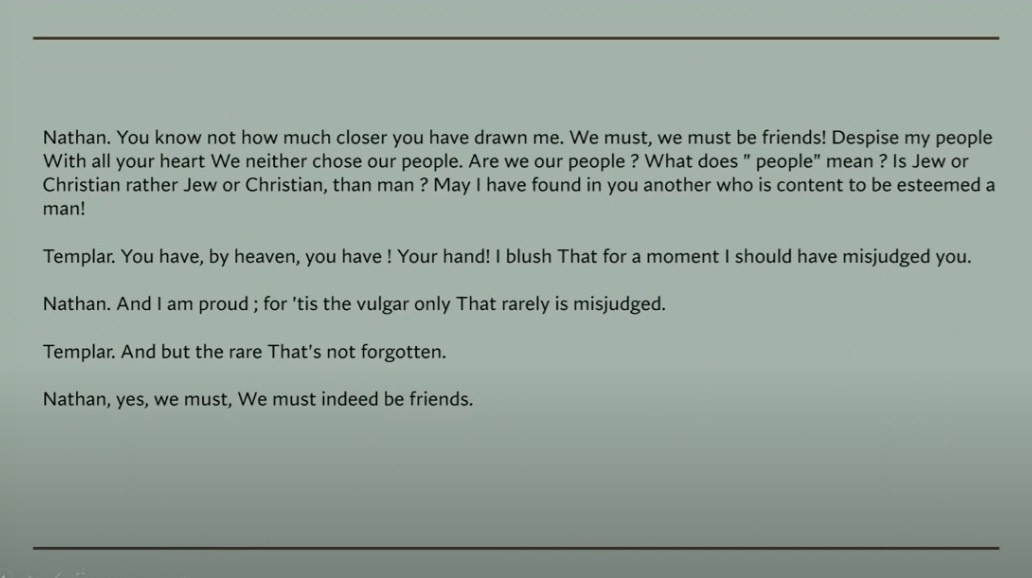
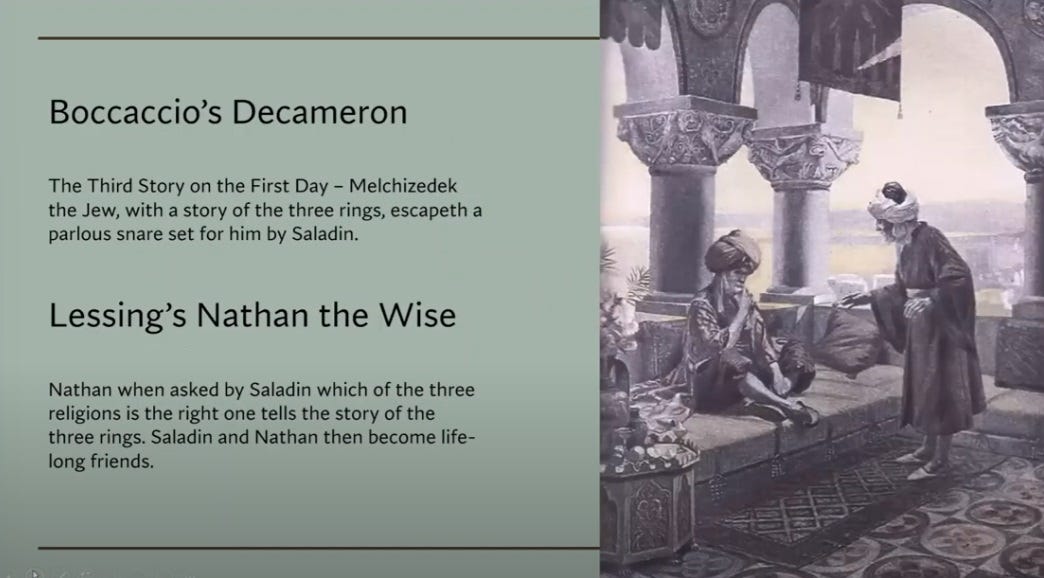
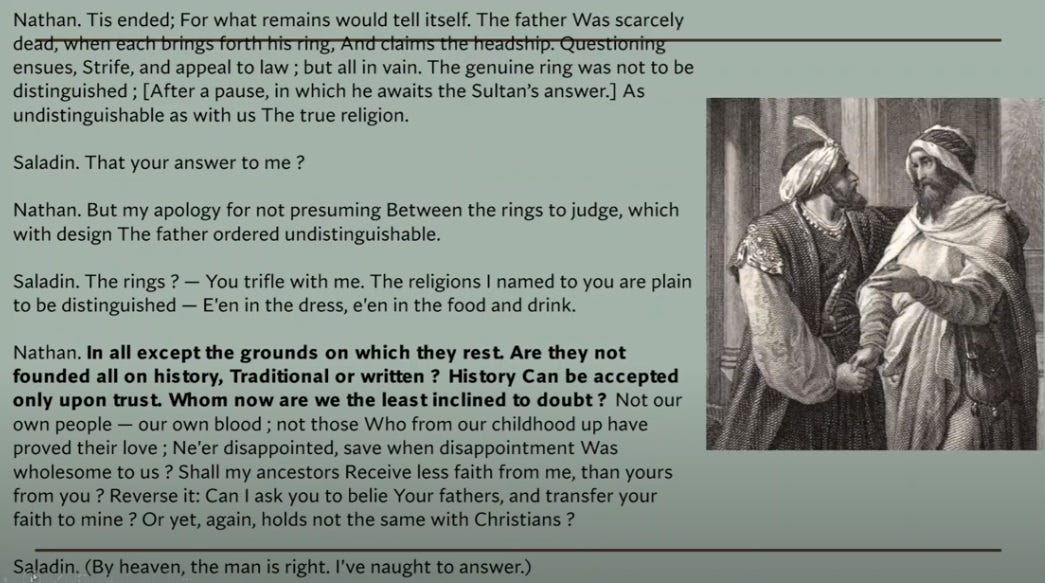
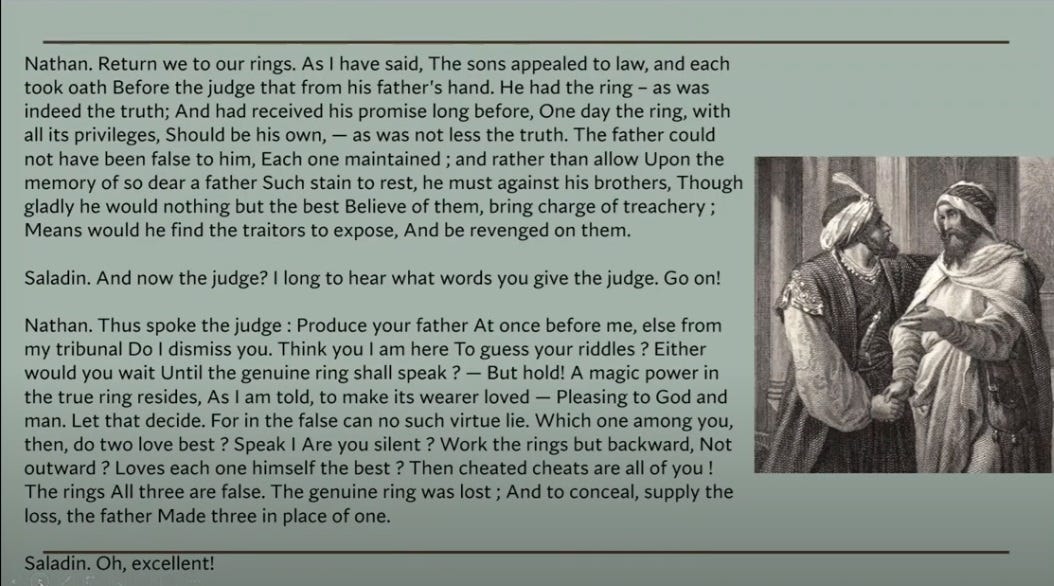
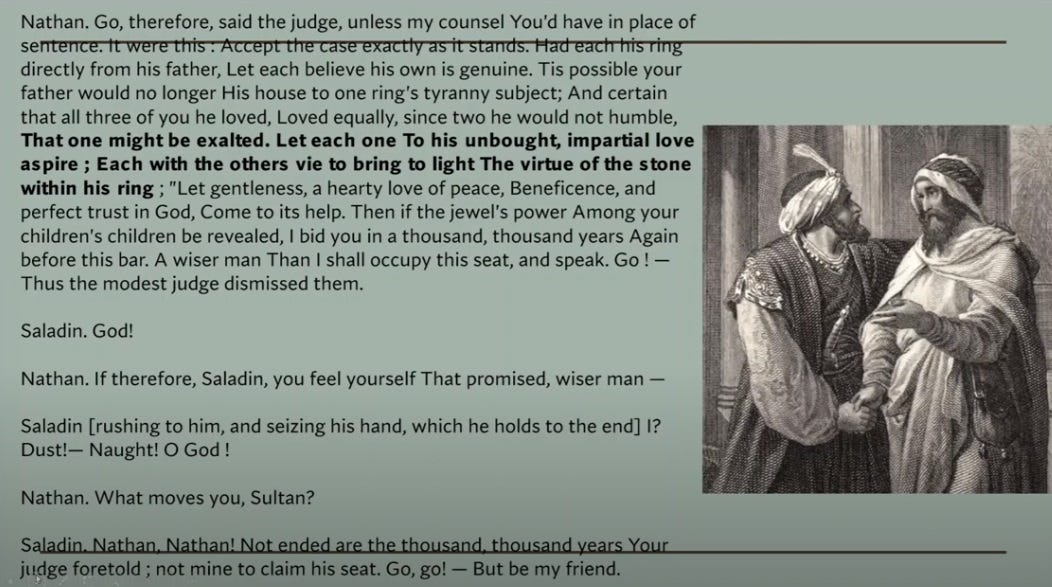
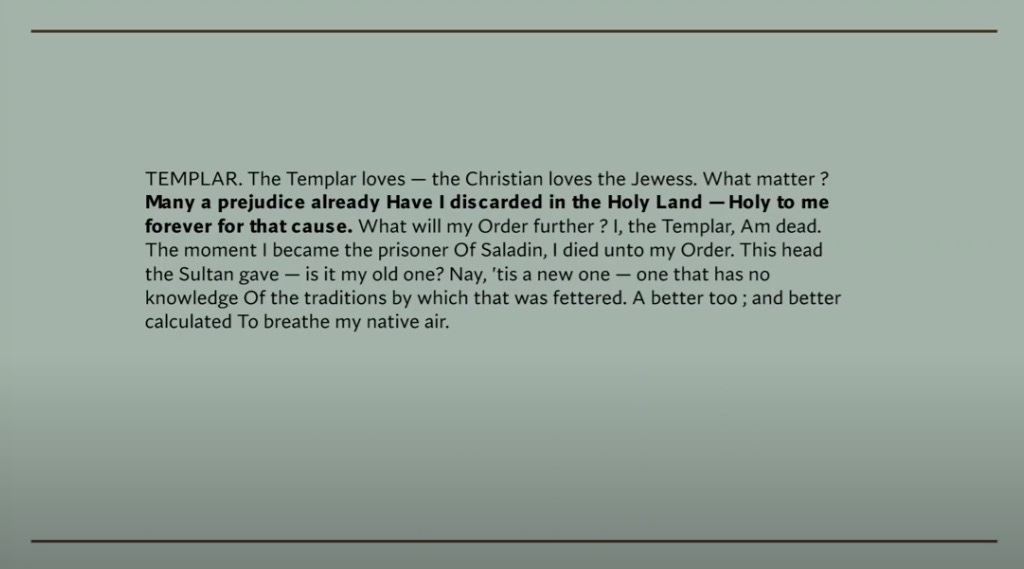
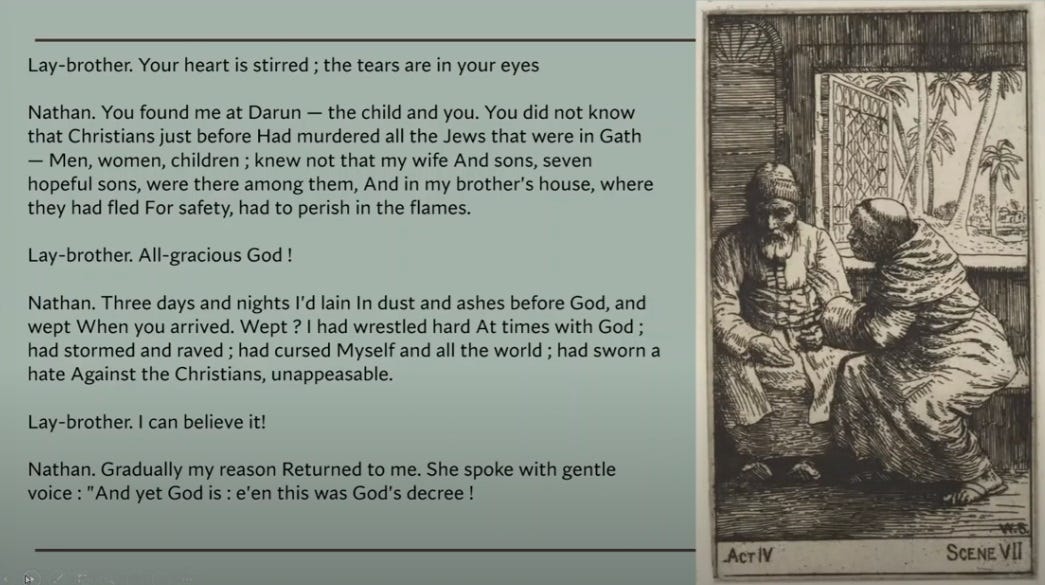
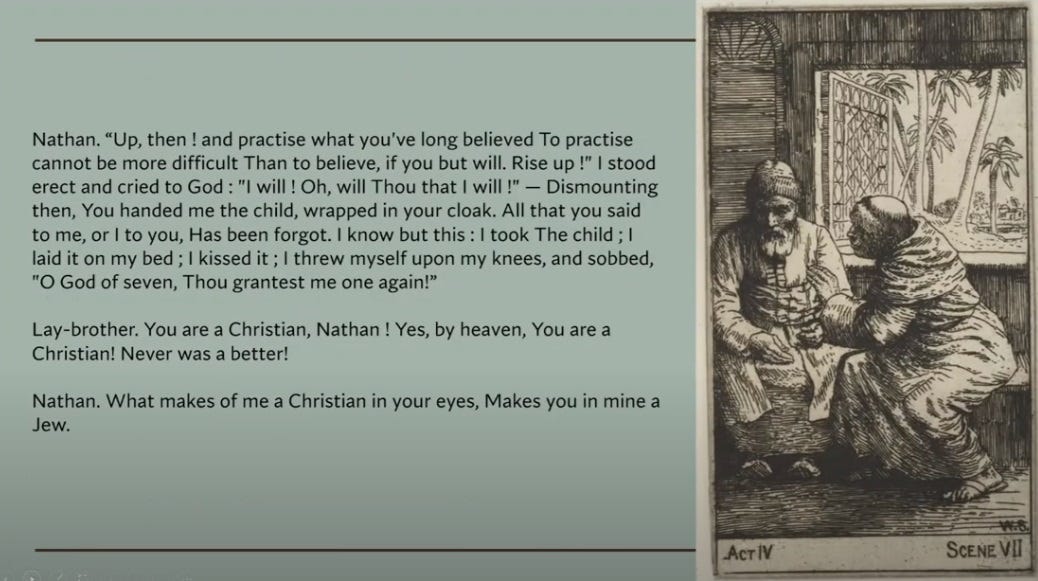
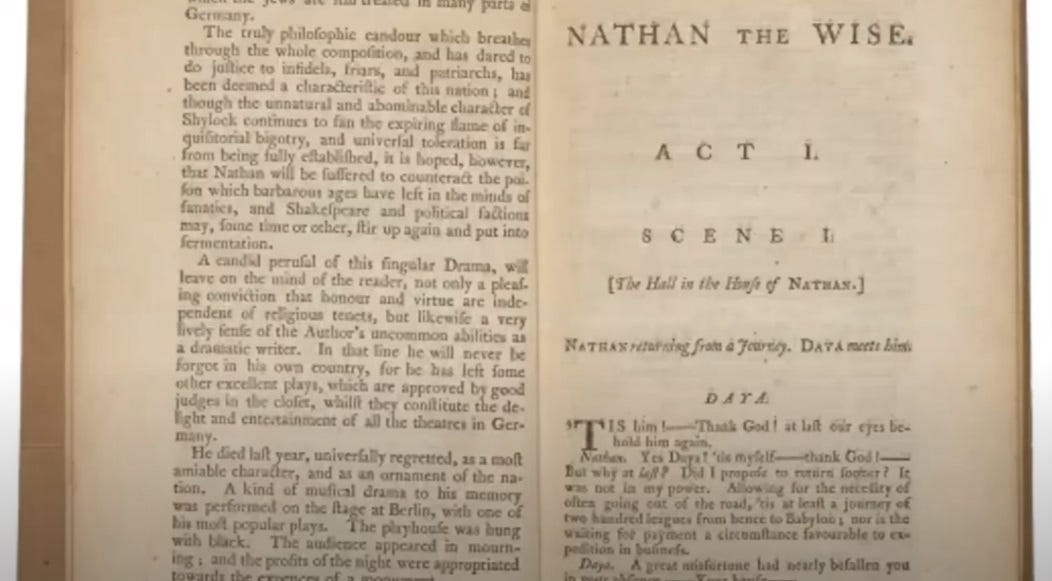
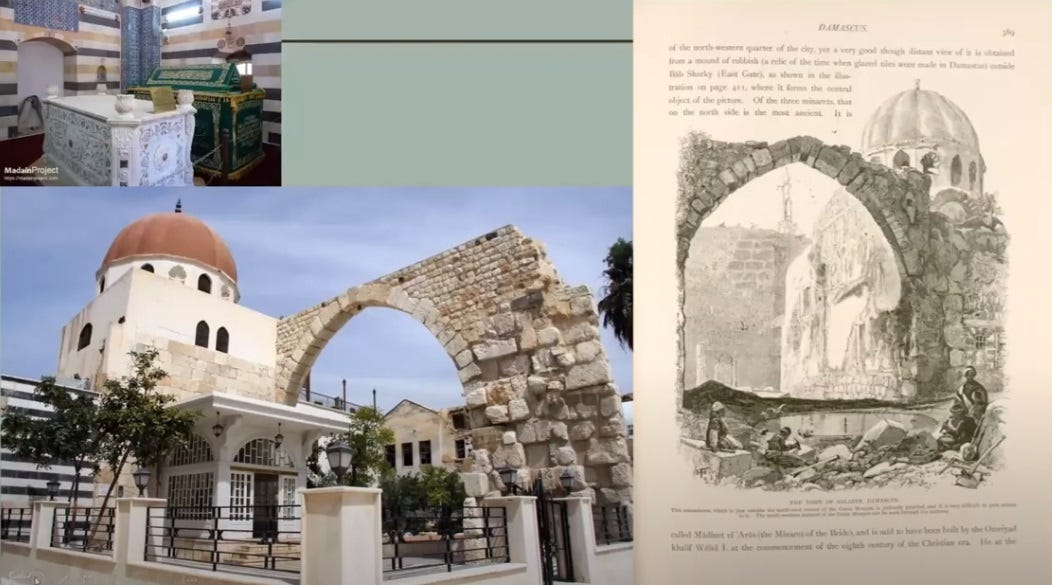
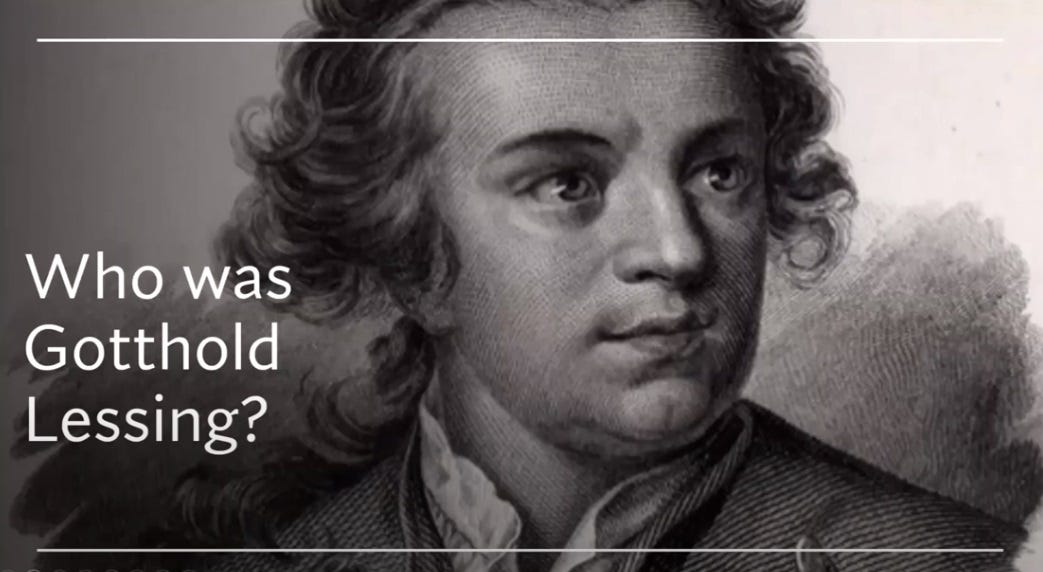
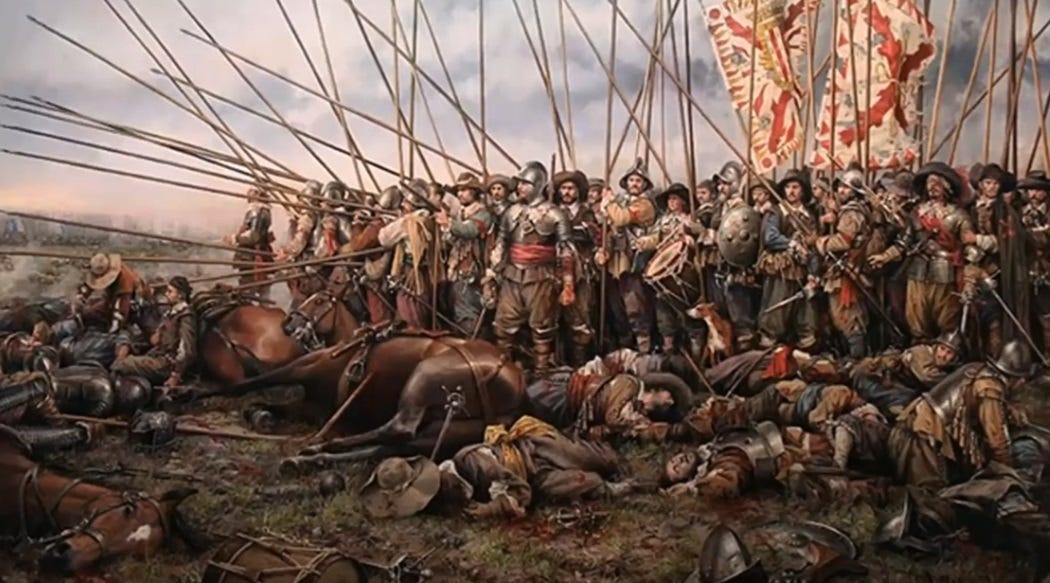
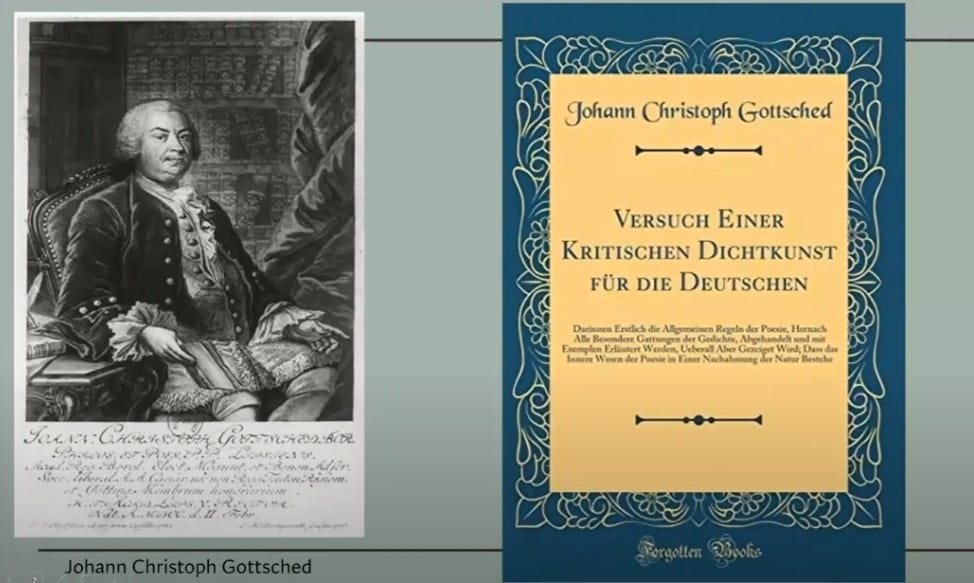
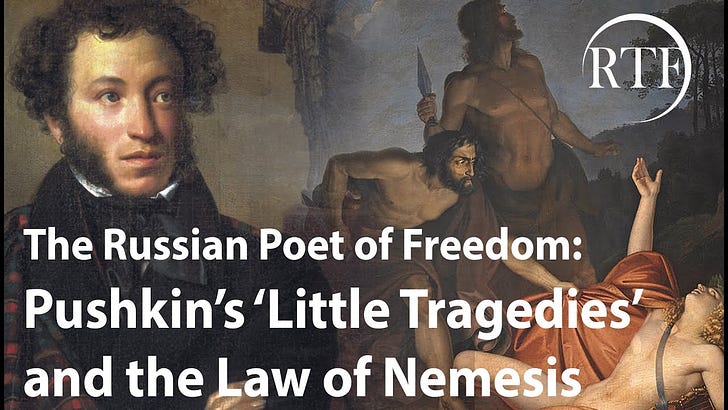
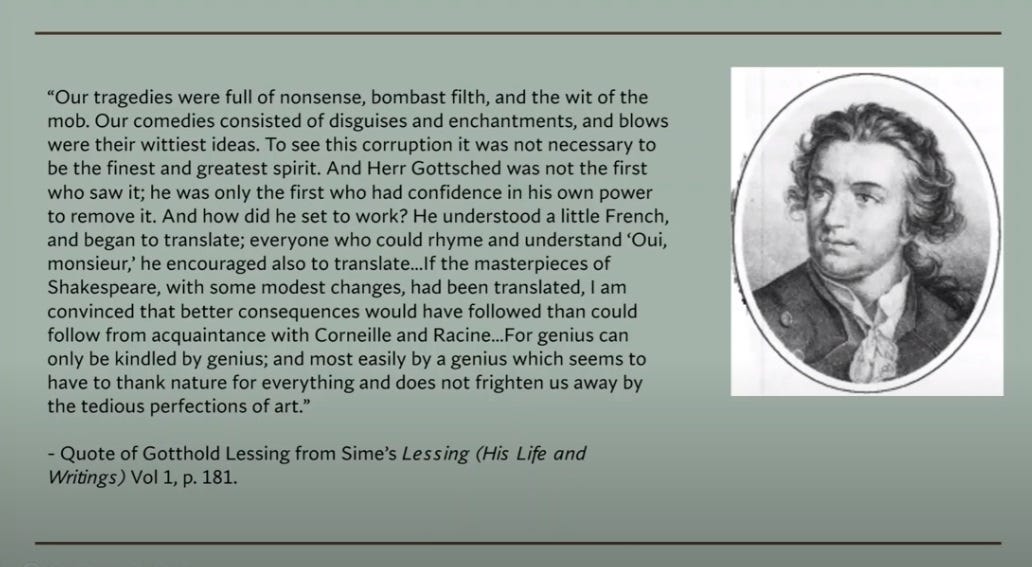
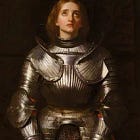
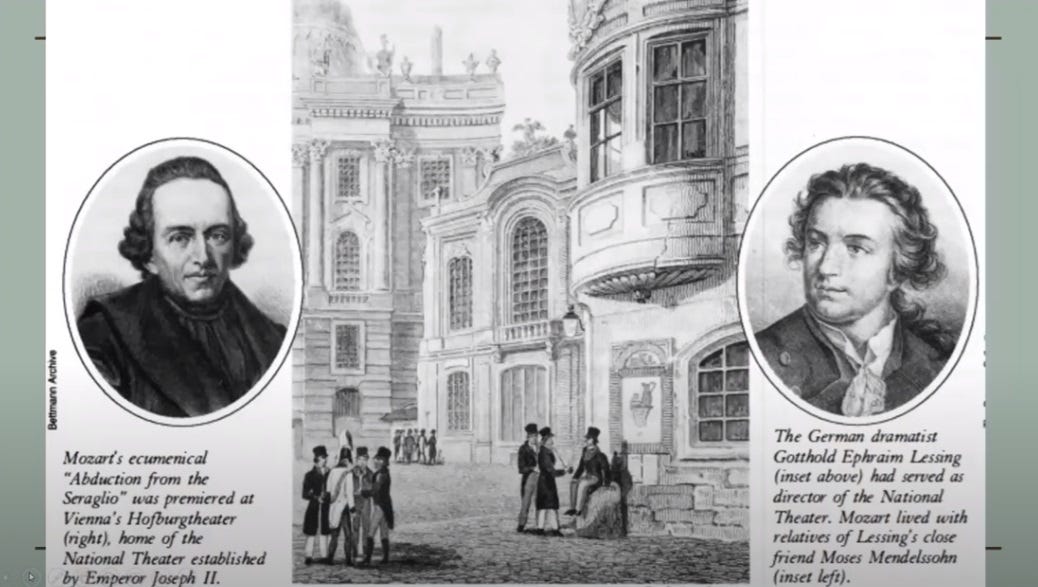
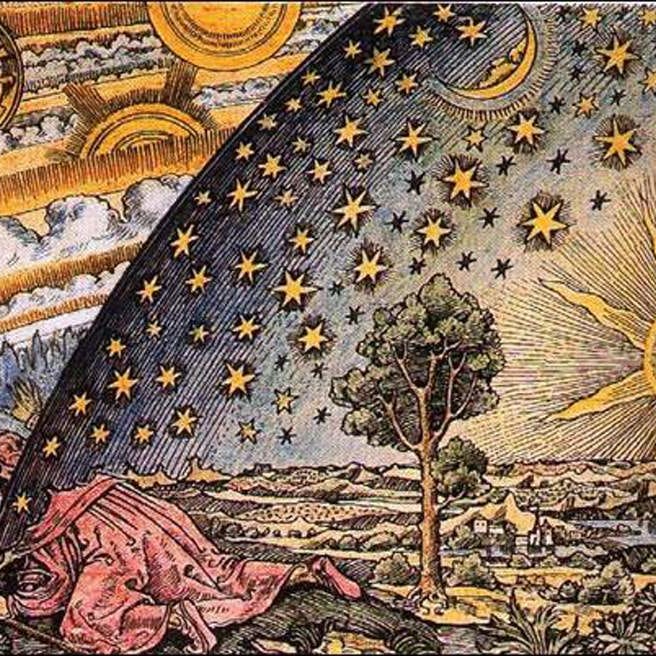
Lovely, all new for me but many home truths in the stories in the day of old. These days so much of of entertainment is violence and titilation with no moral or value.
Small world comes to mind in the conclusion to “Nathan the Wise”. Plenty of deep meaning as well when it comes to religious disputes, to put it mildly. Maybe the simplest most practical solutions are the necessity of life for everyone. Beautiful piece, looking forward to the next installment. Thanks and God Bless!!!